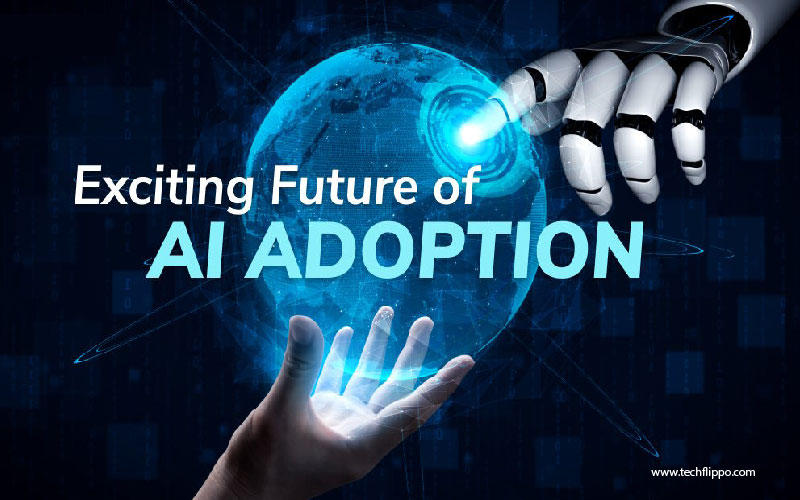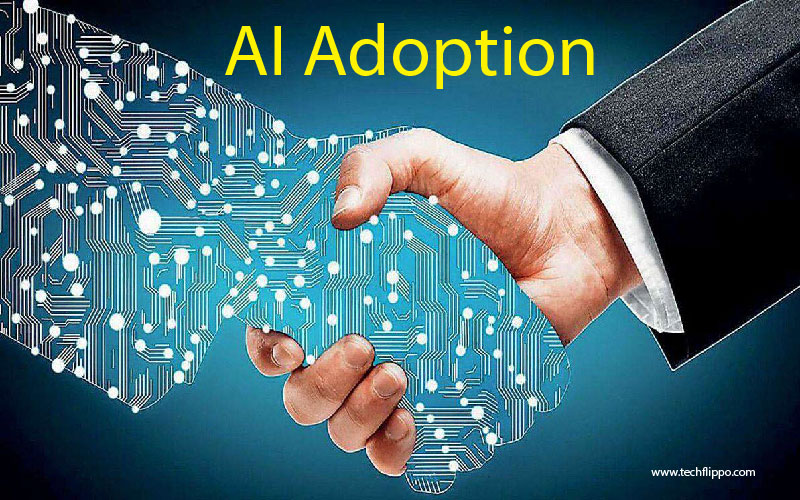How AI Adoption Transforms Industries and Workplaces
Artificial Intelligence (AI) is no longer a concept confined to science fiction. It has burst into the real world, reshaping how industries operate and redefining workplaces. From healthcare to manufacturing, AI adoption is revolutionizing processes, enhancing efficiency, and driving innovation at an unprecedented pace. But what does this transformation mean for businesses and employees alike? As organizations scramble to harness the power of AI, understanding its impact becomes essential. Dive in as we explore how AI adoption is changing the landscape across various sectors and what it means for our future work environments.

Examples of industries that have been transformed by AI
The healthcare industry stands out as a prime example of AI transformation. Machine learning algorithms now assist in diagnosing diseases more accurately and efficiently. This technology enables faster processing of medical images, aiding radiologists in detecting conditions like cancer at earlier stages.
In the finance sector, AI has revolutionized risk assessment and fraud detection. Algorithms analyze vast amounts of data to identify unusual patterns, allowing institutions to respond swiftly to potential threats. Automated trading systems also optimize investment strategies by predicting market trends.
Retail is another area experiencing profound change through AI adoption. Personalized recommendations enhance customer experiences while inventory management systems predict demand with remarkable precision.
Manufacturing is being redefined too, with robots handling repetitive tasks alongside human workers. Predictive maintenance powered by AI reduces downtime and increases efficiency on production lines. Each industry showcases the diverse ways that adopting artificial intelligence reshapes operations for the better.
Benefits of AI adoption in the workplace
AI adoption in the workplace brings numerous advantages that can redefine productivity. One of the most significant benefits is automation. By handling repetitive tasks, AI frees up employees to focus on more strategic initiatives.
Enhanced decision-making is another major perk. AI systems analyze vast amounts of data quickly, providing insights that help managers make informed choices.
Collaboration also improves with AI tools that facilitate communication and project management. Teams can work seamlessly across various platforms, enhancing efficiency.
Moreover, personalized employee experiences lead to greater job satisfaction. Tailored training programs powered by AI help individuals grow in their roles.
Cost savings are an undeniable factor too. Businesses often see reduced operational costs as processes become more streamlined and efficient through technology integration.
Embracing AI fosters innovation within organizations by encouraging creative problem-solving and new ideas driven by advanced analytics.
Challenges and concerns surrounding AI implementation
While AI adoption offers significant advantages, it also presents a range of challenges and concerns that organizations must navigate.
One major issue is the fear of job displacement. Many employees worry that automation will replace their roles, leading to anxiety about future employment opportunities.
Data privacy is another critical concern. As companies leverage vast amounts of data for AI algorithms, safeguarding sensitive information becomes paramount. Breaches can result in severe consequences both legally and reputationally.
Additionally, there’s the challenge of bias within AI systems. If training data reflects societal biases, the outcomes can perpetuate inequality rather than promote fairness.
Moreover, integrating AI with existing systems often requires substantial investment in technology and talent. Companies may struggle to find skilled professionals who understand how to effectively implement and manage these advanced solutions.
Addressing these concerns is essential for fostering a smooth transition toward an AI-driven workplace.

How companies can successfully integrate AI into their operations
Integrating AI into operations requires a strategic approach. First, companies should identify specific areas where AI can add value. This could be in customer service, supply chain management, or data analysis.
Next, investing in the right technology is essential. Choosing platforms that align with existing systems ensures smoother implementation. Collaboration between IT teams and end-users fosters better understanding of needs and capabilities.
Training employees is another crucial step. Providing resources for skill development enhances confidence and encourages innovation within the workforce.
Establishing clear goals helps measure success post-implementation. Regular assessments allow businesses to adapt their strategies based on performance metrics.
Maintaining an open dialogue about changes with all stakeholders builds trust and eases transitions. Engaging everyone involved creates a culture ready to embrace emerging technologies effectively.
The future of AI and its potential impact on jobs
The future of AI is poised to reshape the job market in profound ways. As automation continues to evolve, many traditional roles may diminish or transform entirely. Yet, this isn’t a cause for alarm; it’s an invitation to adapt.
New technologies often create new types of jobs that didn’t exist before. Positions focused on AI management, data analysis, and machine learning are already emerging. Workers will have the opportunity to upskill and find their niche in this evolving landscape.
Moreover, AI can enhance productivity by taking over repetitive tasks. This shift allows employees to focus on more strategic initiatives that require creativity and critical thinking.
However, navigating this transition won’t be without challenges. Employees must embrace continuous learning while organizations need strategies for reskilling their workforce effectively. The path forward will demand collaboration between technology and human ingenuity as we redefine success at work.
Conclusion: Embracing the Transformation of Industries with AI
The rapid growth of AI adoption is reshaping industries and workplaces in ways we could only imagine a few years ago. As businesses recognize the potential of artificial intelligence, they are increasingly integrating these technologies into their operations.
This transformation brings numerous benefits, from enhanced efficiency to improved decision-making capabilities. Companies that embrace AI can streamline processes, reduce costs, and ultimately deliver better products and services to their customers.
However, this shift also raises challenges. Concerns about job displacement and ethical implications cannot be overlooked. It’s essential for organizations to address these issues proactively while fostering an environment where technology complements human talent rather than replacing it.
To successfully integrate AI into their operations, companies must invest in training programs for employees. This ensures that teams are equipped with the skills needed to work alongside advanced technologies. Collaboration between humans and machines can lead to innovative solutions that drive progress across various sectors.
Looking ahead, the future of AI promises exciting developments but also uncertainty regarding its impact on jobs. While some roles may evolve or disappear due to automation, new opportunities will emerge as well. Adapting to these changes will be crucial for workers at all levels.
Embracing AI adoption means being open-minded about transformation and willing to navigate both its advantages and complexities together as stakeholders in every industry continue this journey forward.